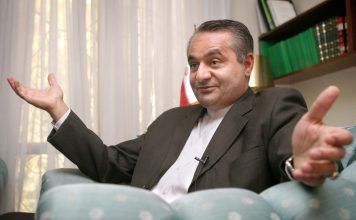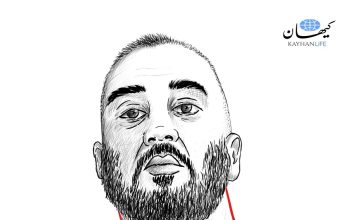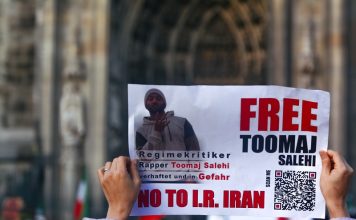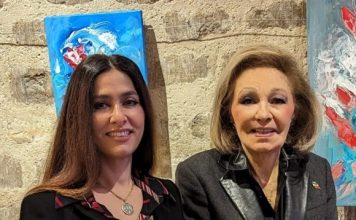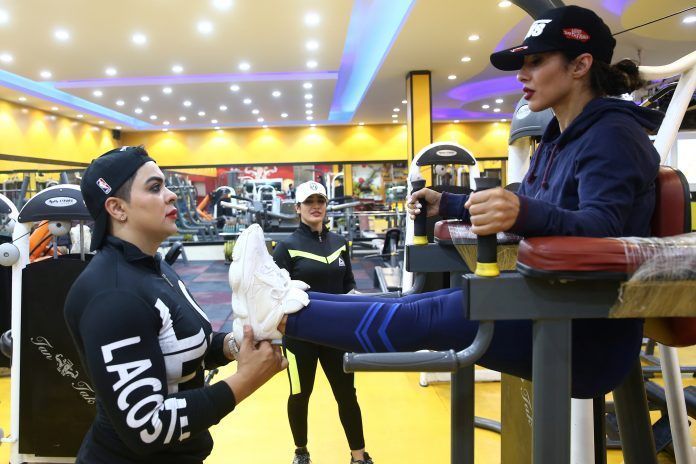
By Kayhan Life Staff
Boxing, powerlifting, and training at a zourkhaneh (house of strength) are not appropriate sports and gym workouts for women, Iran’s Deputy Minister of Sport and Youth Mahin Farhadizadeh has said.
In comments reported by the Tehran-based Aftab News online newspaper, Ms. Farhadizadeh explained: “The council recently reviewed a letter it had received regarding these sports [boxing, powerlifting, and zourkhaneh training]. The board consulted several experts in these fields. Unfortunately, there is not a single cohesive document on the subject. We rely on reports from various federations.”
“We must also consider cultural issues on women in sports,” Ms. Farhadizadeh noted. “We cannot approve sports that change a woman’s entire body and physiology, given that in our religion, a woman is described as reyhaneh [a pleasant-smelling plant-flower]. We must consider both health and sports issues.”
“They must specify the aims of powerlifting for women,” Farhadizadeh noted. “We would reject the request if it was for developing bulky muscles, because bodybuilding has certain training methods that are not appropriate for women. However, officials for powerlifting have proposed three specific exercises and we are reviewing their physiological and health effects.”
“The photographs we have received show only a handful of women interested in exercising at traditional zourkhanehs. Is all the fuss about a few women?” Farhadizadeh asked. “We will review the history of the sport and the traditional Zourkhaneh system of training in our country.”
The Zourkhaneh system of training, known as varzesh-e bastani (ancient sport), and its particular form of wrestling (Koshti Pahlavani), all originated during the Parthian Empire (247BC-224AD) in ancient Persia.
“Zourkhaneh has traditionally been a men’s gymnasium. The special outfit worn in a zourkhaneh is designed only for men,” Farhadizadeh explained. “Some people have suggested that zourkhanehs should schedule alternate days for men and women to work out. Have women ever exercised at a zourkhaneh before? We will compile all the documents, information and footage on these three fields, and review them at our council meetings.”
Iranian Caretaker Fired for Letting Women Exercise in Traditional All-Male Gymnasium
Asked if the title Pahlavani should only be reserved for men, Farhadizadeh said: “No, the term Pahlavani signifies kindness of heart and generosity of spirit. That exists in both men and women. However, why should anyone focus only on the narrow definition of Pahlavani within the context of the Zourkhaneh system of training? Have women taken part in this form of exercise before? What are their reasons for choosing this sport?”
Asked if it was fair to deny women the right to take part in these sports only because they had never done it before, given the changing social climate and public views, Farhadizadeh responded: “That line of reasoning does not apply here. The Zourkhaneh system of training is administered by national and international federations. The sport was not invented but is rooted in ancient history and culture. Men have kept the tradition alive. We safeguard history by maintaining our traditions.”
“History is about the past events which are static and do not change,” Farhadizadeh continued. “Culture is dynamic, which means we develop and broaden the sphere of activities for women based on their interests. We have not restricted them. Women take part in various sports and activities, including surfing and paragliding, which have raised some eyebrows. However, zourkhaneh has always been the domain of men. More men are interested in working out at a zourkhaneh than women.”
“While men have played a key role in preserving the tradition of the Zourkhaneh system of training, there has never been a mention of women in that field,” Farhadizadeh added.
This article was translated and adapted from Persian by Fardine Hamidi.

